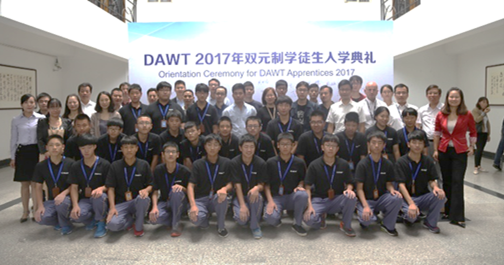About Dual Practice
Taicang is an important symbol of Sino-German cooperation. Since 1993, when CN-KERN-LIEBERS (Taicang) Co., Ltd. settled in Taicang as the first German-invested enterprise, Taicang has gathered more than 300 German-invested enterprises, becoming one of the areas with the highest concentration of German enterprises, the best quality of development and the best cooperation between Chinese and German enterprises in China, and the "hometown of German enterprises "It has become one of the regions with the highest concentration of German enterprises in China, the best quality of development and the best cooperation between Chinese and German enterprises. As a communication platform between enterprises and enterprises and between enterprises and the government, Taicang Roundtable (TRT) was established in 2006 and now has more than 100 member enterprises, which is a professional guild organization for small and medium-sized German enterprises and European enterprises in Taicang. TRT is committed to the sustainable development of enterprises, corporate social responsibility, and local social development, such as hosting the Taicang Oktoberfest, rebuilding the Hope Primary School, and organizing Mr. Zhang Zhenwei, Chairman of TRT, has been elected as a member of the Board of Directors of the German Chamber of Commerce, representing both Taicang and German SMEs, to serve German SMEs on a wider platform.
As the "hometown of German enterprises", Taicang has also introduced the most famous dual training system for German enterprises into the local talent-building model.
01
The practice and development of a Dual Centre for skilled workers
In 2001, Dr. Stamm, then President of the KERN-LIEBERS Group, urged Baden-Württemberg to cooperate with Taicang to solve the problem of the lack of skilled workers in enterprises and to establish the first German Dual Vocational Training in Taicang - the Taicang Training Centre for Professional Workers of German-owned Enterprises (DAWT)
DAWT is the first German dual system vocational training institution in Taicang. Since its establishment, 16 trainees (nearly 500) have graduated from the training center to enterprises since the first batch of trainees graduated in 2004. Many of the trainees have become managers and supervisors of production, technology, manufacturing, and quality after years of hard work.

Thanks to the fruitful results of the DAWT training center, the German "dual system" vocational education model has been developed in Taicang as a model and continues to grow and blossom. At present, there are various forms of "dual system" vocational education institutions in Taicang, such as Schaeffler Training Centre, Haering Training Centre, Trumpf Training Centre, Auto-Kabel Training Centre, IMS Training Centre, Jianxiong Sino-German Training Centre, etc.
02
The practice and development of the dual undergraduate programme
In 2017, also with the active liaison and involvement of KERN-LIEBERS, China's first Sino-German dual undergraduate programme was launched in Taicang.

The first batch of students
/ Commencements ceremony
The Taicang Sino-German Dual Undergraduate Program is a pilot project between the Taicang Municipal People's Government, Chengxian College of Southeast University, DHBW, and DHBW's German corporate partners in Taicang, to train interdisciplinary talents according to the needs of local enterprises in Taicang. In the initial phase of the project, it is planned to establish a dual program for a bachelor's degree in "Machine Building Management/Technology Management" with an annual intake of about 20 to 30 students for four years. The first year will be the basic course at Chengxian College of Southeast University, and the next three years will be the dual education and training phase in Taicang and the practical training phase in Taicang German companies, which will be divided into a 3-month academic study phase at school and a 3-month practical phase in the company.
In 2020, the first batch of 20 trainees graduated and successfully signed labor contracts with companies, sending the first batch of excellent engineers with practical skills to companies.
Three batches of trainees have been enrolled in the program so far, and the selection of the fourth batch of trainees will take place in September this year.
